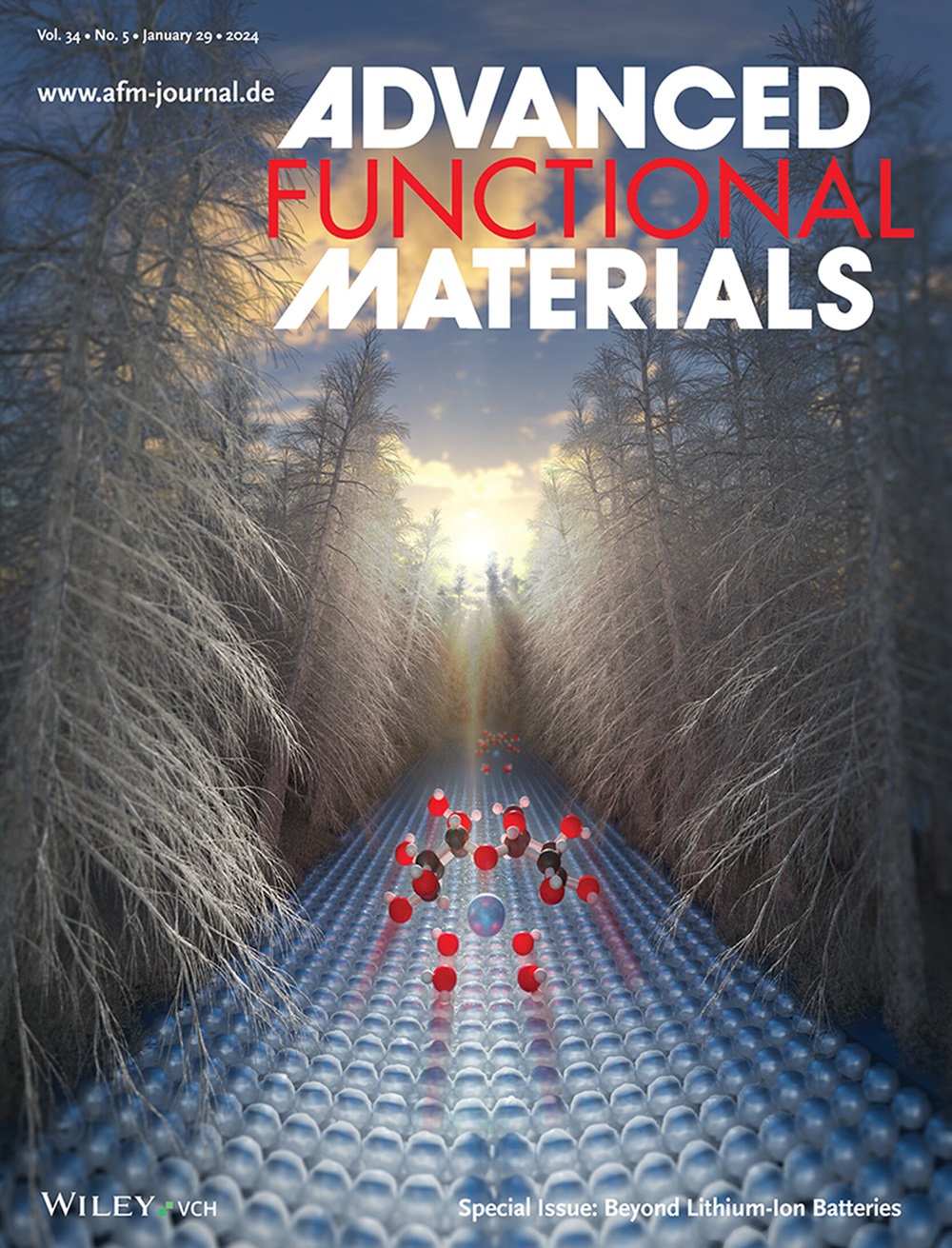Solid-State Proton Battery With Record High Specific Capacity Enabled by Covalent-Organic Framework Electrolyte
IF 18.5
1区 材料科学
Q1 CHEMISTRY, MULTIDISCIPLINARY
引用次数: 0
Abstract
Proton batteries have emerged as promising candidates for next-generation energy storage technologies due to the minimal size, light weight, ultrafast diffusion kinetics and low cost of protons as charge carriers. However, the use of conventional liquid acid electrolytes poses great challenges, including electrode dissolution, current collector corrosion, and a restricted operating voltage window. In this work, a solid protonic electrolyte based on a covalent-organic framework (COF) is presented to address these limitations and enable the development of solid-state proton batteries. Methanesulfonic acid (MeSA) molecules are incorporated into the pores of a sulfonated COF (sCOF), resulting in the protonic electrolyte MeSA@sCOF. Notably, MeSA@sCOF displays a high proton conductivity over 10⁻2 S cm⁻¹, good long-term stability, and a wide electrochemical stability window. More importantly, when MeSA@sCOF is employed as the electrolyte in solid-state proton batteries, it enables the batteries to achieve exceptional rate capability, excellent cycling stability, and a record-high specific capacity compare to previously reported solid-state proton batteries.

求助全文
约1分钟内获得全文
求助全文
来源期刊

Advanced Functional Materials
工程技术-材料科学:综合
CiteScore
29.50
自引率
4.20%
发文量
2086
审稿时长
2.1 months
期刊介绍:
Firmly established as a top-tier materials science journal, Advanced Functional Materials reports breakthrough research in all aspects of materials science, including nanotechnology, chemistry, physics, and biology every week.
Advanced Functional Materials is known for its rapid and fair peer review, quality content, and high impact, making it the first choice of the international materials science community.
 求助内容:
求助内容: 应助结果提醒方式:
应助结果提醒方式:


